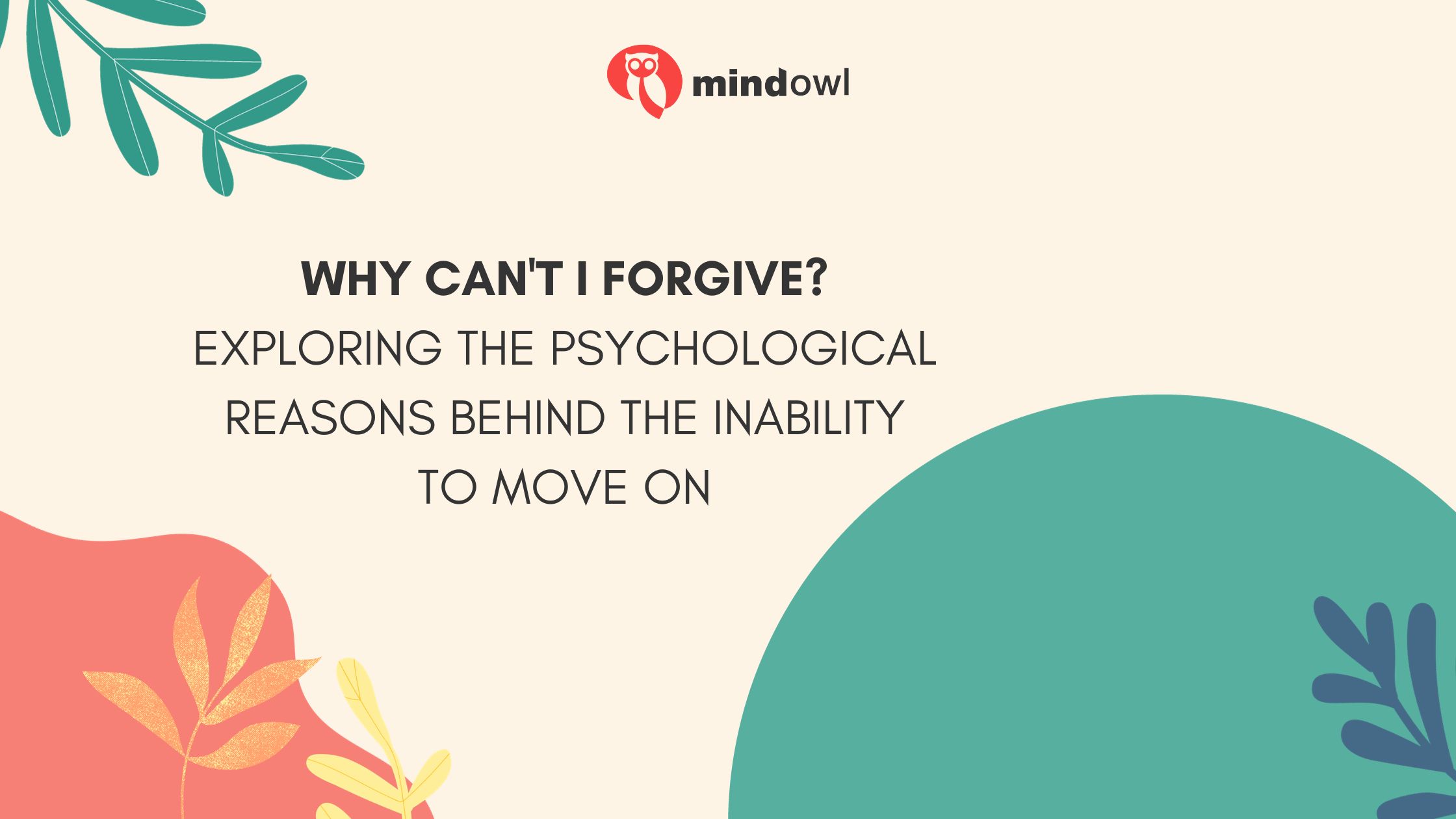
Forgiving someone who’s hurt us can feel like an impossible task, a struggle that many share. Research suggests that while forgiveness benefits our well-being, the path there isn’t straightforward for everyone.
In this post, we’ll delve into why letting go is so hard and offer steps to ease the journey towards forgiveness. Read on if you’re wondering how to break free from resentment’s hold.
Key Takeaways
- Forgiveness is about letting go of negative feelings such as anger and bitterness. It’s important for our mental health and can help our physical health too.
- Many find it hard to forgive because they fear being hurt again, struggle with trusting the person who wronged them, or feel guilty themselves.
- Not forgiving can lead to stress, which might make us sick. Holding onto anger and resentment might hurt our relationships with other people too.
- Talking about how we feel with friends or a therapist could help when we’re finding it tough to forgive. Starting small with steps toward forgiveness is okay.
- Forgetting ourselves first is important in learning from past mistakes. This helps us grow better inside and leads us towards peace.
Understanding Forgiveness
Forgiveness is a complex and important aspect of mental well-being. It involves letting go of anger and resentment towards someone who has wronged you. Understanding the nuances of forgiveness can help in exploring the reasons behind the inability to forgive and finding ways to move forward.
Definition of forgiveness
Forgiveness means making the choice to let go of bitterness or the need for revenge against someone who has done you wrong. It’s about setting yourself free from negative feelings that can hold you back.
This decision helps us see that keeping anger and resentment doesn’t help us anymore. When we forgive, it does not say the hurtful act was okay; it’s finding a way to be at peace with what happened and moving on with life.
We learn to understand the person who hurt us when we truly forgive them. We look for reasons why they might have acted as they did. Forgiveness lets our hearts find empathy and kindness towards others, even if they have been unkind to us.
It’s something we do for ourselves so that past hurts don’t keep hurting us over time.
Importance of forgiveness
Letting go of anger and holding onto good thoughts is what forgiveness is all about. It is like setting down a heavy bag we have been carrying. Our hearts feel lighter, and our minds become clearer.
Being able to forgive can lead us away from pain and anger that weigh us down. When someone hurts us, the sting can stay for a long time. But if we find it in ourselves to let go of that hurt, we start feeling better.
Forgiving someone doesn’t mean what they did was okay; it means we are ready to move on for our own peace. It helps keep our bodies healthy too because when we’re not stuck in the past with bad feelings, we get sick less often.
Good feelings help make strong friendships and mend broken ones. Forgiveness lets people grow from their mistakes instead of staying angry at them forever.
Common Reasons for Inability to Forgive
Many people struggle with forgiveness due to feelings that what happened was okay, a belief that the offender doesn’t deserve forgiveness, lack of trust, fear of being hurt again, holding onto anger and resentment, or difficulty forgiving oneself.
These reasons can create emotional barriers that make it challenging to move towards forgiveness.
Feeling like what happened was okay
It’s tough to forgive when you think the hurtful action was fine. But forgiveness does not mean saying it was okay. It’s about letting go of anger and resentment towards the person who did wrong.
You don’t have to like what they did or agree with it. Forgiveness lets you move past the pain without holding on to it.
Some people believe that if they forgive, they are telling the other person their actions were acceptable. This is not true. You can forgive someone and still know that what they did hurt you deeply.
Letting go of bad feelings is a step towards healing yourself, not them. Forgiveness gives you power over how you feel inside.
Believing they don’t deserve forgiveness
Some people think if they forgive, it means they’re saying what happened was fine. But really, forgiveness is for them, not the person who did wrong. Yet, many can’t let themselves off the hook.
They feel too guilty or ashamed about something they did or didn’t do. They struggle because deep down, they believe that making mistakes makes them bad or unworthy of being forgiven.
These feelings are strong and can trick a person into thinking they should never move on. Compassion is missing when these thoughts take over. It’s important to understand that everyone makes errors and learning from them is part of life—forgiving yourself gives room to grow and heal.
A therapist might help sort through these tough emotions by offering understanding and support in place of judgment.
Lack of trust
Trust is a big part of why we might find it hard to forgive. When someone hurts us, we may think they haven’t changed or that they don’t understand how much they hurt us. This can make us afraid to trust them again because we don’t want more pain.
It’s also about believing whether the person will stay true to their word in the future.
Often, people hold back from forgiving as a way to protect themselves. They fear getting close could lead to being let down once more. Without trust, it’s very hard for forgiveness to happen since letting go of anger needs some level of belief in others’ goodness or potential for change.
Trusting after being hurt takes courage and time; it isn’t easy when emotions like fear and sensitivity are strong inside us. Moving towards healing might require learning how trustworthy someone really is before you feel ready to forgive.
Fear can stop us from letting our guard down around those who have wronged us before.
Fear of being hurt again
Letting someone back into your heart after they’ve hurt you can be truly scary. You might hold back from forgiving because the pain feels fresh and raw. If you let them in, they could cause the same hurt all over again.
This fear makes it very hard to forgive. It can feel safer to keep your guard up rather than risk going through that pain once more.
People often find themselves stuck because their trust has been broken by someone important to them. Love and trust go hand in hand, so when a loved one causes us harm, it shakes us deeply.
We might think if we forgive them, we’re saying what they did is okay—but it’s not about that at all. Forgiving doesn’t mean forgetting; it’s a step towards healing ourselves, even if the scars remain hidden inside us.
Holding onto anger and resentment
Holding onto anger and resentment is like carrying a heavy bag everywhere you go. It can make your mind and body feel tired. Over time, this weight can lead to sadness, frustration, and even health problems.
Anger wants to keep you safe, but too much of it for too long is not good.
Forgiving does not mean saying what someone did is okay. It’s about letting yourself move on from the hurt they caused. Think of forgiveness as setting down that heavy bag so you can walk more freely and feel better inside.
Now let’s look at how hard it is to forgive ourselves sometimes.
Difficulty forgiving oneself
Finding it hard to forgive oneself can lead to a lot of negative feelings like guilt, shame, and blaming yourself. Sometimes, not forgiving yourself could also be linked to feeling depressed.
When you struggle with forgiving yourself, it can make you feel stuck in those bad feelings. It’s important to know that practicing forgiveness may help decrease anxiety and improve your mental health.

The Effects of Not Forgiving
Not being able to forgive can have a significant impact on emotional well-being, relationships, and even physical health. It can lead to feelings of anger, resentment, and bitterness, affecting one’s overall happiness and peace of mind.
Unresolved anger and resentment not only harm emotional well-being but can also lead to chronic stress and deteriorating mental health. For adolescents struggling with deeper emotional wounds, seeking support in residential treatment for teens in Boise, Idaho can provide a structured therapeutic environment to aid in emotional recovery.
Impact on emotional well-being
The inability to forgive can have a significant impact on emotional well-being. Holding onto anger and resentment can lead to increased stress, anxiety, and depression. Research has shown that forgiveness is linked to reduced anxiety, depression, and major psychiatric disorders.
By not forgiving, individuals may experience persistent negative emotions which can take a toll on their mental health. Learning to forgive and letting go of grudges can lead to improved psychological wellness and offer protection against future issues.
Furthermore, emotional forgiveness involves replacing negative emotions with positive feelings like compassion, sympathy, and empathy which are crucial for overall well-being.
Forgiveness is associated with lower levels of stress and improved mental health. Empirical studies have shown that forgiveness decreases anger, anxiety, and depression while increasing self-esteem and hopefulness for the future.
Effects on relationships
Not forgiving can strain relationships, creating distance and tension between people. It makes it hard to trust others, leading to communication breakdowns and resentment. Couples or friends might struggle to move forward when forgiveness is absent, hindering emotional connection and intimacy.
Forgiveness fosters a healthier bond based on empathy, respect, and understanding, enhancing relationship satisfaction and reducing conflict.
Unforgiveness may lead to hurtful behaviors and emotional withdrawal within relationships. It creates a barrier that prevents authentic connection and mutual support in times of need.
Physical health consequences
Unforgiveness can have real impacts on your physical health. Research shows that holding onto anger, resentment, and unforgiveness can contribute to increased stress levels. This chronic stress may lead to negative effects on the body, such as high blood pressure, weakened immune system function, and even an increased risk of heart disease.
In fact, studies have found that those who struggle with forgiveness tend to experience more health problems related to chronic stress.
This impact extends beyond just emotional distress; it affects the body at a physiological level. Chronic stress resulting from unforgiveness has been linked to various physical health issues like headaches, digestive problems, sleep disturbances, and muscle tension.

How to Move Towards Forgiveness
Start by accepting your decision not to forgive and talking through your feelings with someone you trust, before finding the positive aspects and starting small with forgiveness. To explore more ways to move forward in the forgiveness process, keep reading!
Accepting your decision not to forgive
It’s okay if you’re not ready to forgive. Accepting your decision not to forgive is an important step in the healing process. It’s normal to feel hurt and angry, and it’s okay to take the time you need to work through those emotions at your own pace.
Remember that choosing not to forgive doesn’t mean you’re wrong or that others who choose forgiveness are wrong. Everyone processes their pain differently, and it’s essential to respect your own feelings and boundaries as you navigate through this journey.
Seeking support from a therapist can also help you work through your emotions in a healthy way, providing the empathy and understanding needed during this difficult time.
Talking through your feelings
When feeling unable to forgive, it can be helpful to talk through your feelings. Expressing your emotions to a trusted friend or therapist can provide support and clarity. Sharing your thoughts with someone understanding can help you process the reasons behind your struggles with forgiveness and work towards finding resolution.
This open dialogue fosters self-reflection and helps in uncovering underlying issues hindering the ability to forgive, leading the way towards healing and growth.
Moving forward from discussing one’s feelings, let’s explore “Finding the positive aspects” as an essential step towards forgiveness.
Finding the positive aspects
Forgiveness might feel hard, but it can bring positive changes. When you forgive, you let go of negative emotions like anger and resentment. This can lead to improved mental health by reducing anxiety and depression.
Forgiveness also strengthens relationships and brings a sense of peace. Research shows that forgiving others benefits your physical health too, lowering stress levels and promoting overall well-being.
Now let’s explore the steps to move towards forgiveness – Starting small with forgiveness
Starting small with forgiveness
Transitioning from finding the positive aspects to starting small with forgiveness, it’s essential to recognise that forgiveness doesn’t always happen in one grand gesture. Sometimes, it begins with small steps.
Acknowledging your decision not to forgive and allowing yourself to feel the anger are crucial initial actions. Talking through your feelings may be challenging; however, it’s a significant stride towards letting go of resentment.
Furthermore, finding positive aspects in your life can often lead to a shift in perspective, making forgiveness seem more attainable.
Understanding that forgiveness is a process and does not happen overnight is crucial for taking those first small steps towards letting go of resentment. Practising empathy and respect for oneself by recognising the emotions and thoughts associated with an inability to forgive can build the foundation for gradual progress towards true forgiveness.
Maybe it’s not easy to forgive, but blaming will only make you more tired. Understand mistakes, forgive mistakes, and accept the imperfections in this world. Choose a custom commemorative coin that can remind you, and place one in the jar at each moment of forgiveness. When the jar is full, you will definitely feel the power of forgiveness. Adding a date or words of warning to yourself on Custom Coins will give you more insight when you see it again.
Forgiving oneself first
Start by acknowledging that everyone makes mistakes. It’s okay to feel regret, but dwelling on it won’t change the past. Understand what you can learn from the situation and how you can grow because of it.
Accepting your flaws and showing self-compassion are crucial steps towards forgiving yourself. Remember, letting go of self-blame creates space for personal growth and a fresh start.
Forgiving oneself first involves accepting what can’t be changed. This process allows individuals to let go of self-condemnation and embrace new opportunities for learning and development.
The Power of Forgiveness
Forgiveness has the power to bring closure, improve overall well-being and provide an opportunity for learning and growth. Ready to explore how forgiveness can transform your life? Keep reading to discover more about the psychological reasons behind the inability to forgive and how to move towards a place of healing and peace.
Bringing closure
Forgiveness brings closure to painful situations and helps in healing emotional wounds. Embracing forgiveness can release us from negative emotions, allowing us to move forward and prevent holding onto anger and resentment.
By forgiving people, we take a powerful step towards improving our emotional well-being and fostering healthier relationships. It’s important to recognise that forgiveness is a choice, one that can lead to learning and growing from experiences.
Improving overall well-being through forgiveness is within reach by making small steps in letting go of past hurts. When we find it difficult to forgive, it’s essential to remember the power of empathy and compassion both for others and ourselves, as this can aid in the process of moving towards forgiveness.
Improving overall well-being
Improving your overall well-being involves letting go of grudges and bitterness, which can lead to improved health and peace of mind. Studies have shown that forgiveness is linked to reduced anxiety, depression, and major psychiatric disorders, resulting in improved mental health outcomes.
It decreases anger, anxiety, and depression while increasing self-esteem and hopefulness for the future. Additionally, the act of forgiveness reaps huge rewards for health by lowering the risk of heart attack and improving cholesterol levels.
Moreover, recent research suggests that forgiveness can benefit people’s physical health too; it may result in lower blood pressure and better academic performance in children. Embracing healthy boundaries with compassion and understanding is essential for fostering overall well-being.
Learning and growing from the experience
Forgiveness can be a journey filled with complexities and emotions. It’s okay to take small steps and acknowledge the progress made. Recognising the power of forgiveness helps in moving towards healing, improving well-being, and embracing life with purpose.
This process doesn’t have a fixed timeline; it’s about taking care of oneself while gradually learning to let go. Understanding that forgiveness is empowering offers individuals a chance to release resentment, find closure, and embrace positive changes in their lives.
It’s important for individuals not to rush or feel pressured into forgiving quickly. By focusing on personal growth and self-compassion, one can navigate through this transformative experience at their own pace.
Conclusion
In conclusion, understanding the reasons behind our inability to forgive is crucial in fostering empathy and healing. By exploring these psychological barriers, we can begin to dismantle the walls that keep us from moving forward.
It’s important to remember that forgiveness is a personal journey, and seeking support in processing our emotions can be instrumental in this process. As we navigate the complexities of forgiveness, let’s embrace self-compassion and acknowledge that it’s okay not to have all the answers right away.
Ultimately, recognising the obstacles to forgiveness empowers us towards a path of healing and growth. For some, participating in the best virtual IOP program can provide valuable support in navigating these emotional challenges, offering practical tools for emotional healing.
FAQs
1. Why do some people find it really hard to forgive?
People might have a tough time forgiving because they are still angry or hurt. They may feel the person’s behavior was unforgivable, or they aren’t ready to let go of resentment.
2. Can holding onto anger harm my well-being?
Yes, holding onto anger can lead to stress and affect your health. If you’re finding it difficult to let go, this could be a sign that you need to process your feelings more.
3. Is forgiveness necessary for everyone who has been wronged?
No, not everyone feels the need to forgive in order to move on. Some individuals believe they don’t have a problem with keeping their distance from those who’ve done them wrong.
4. What if I want to forgive but simply can’t seem to do it?
It’s okay if you’re trying but still not able; sometimes we’re not able yet because we haven’t processed our emotions fully or illness and injury get in the way of healing.
5. Does choosing not to forgive mean I’m just holding a grudge?
Not always; You might have good reasons like emotional abuse or betrayal that make trusting someone again very hard for you.
6. Who can help me if I’m having trouble forgiving someone?
A therapist can help guide you through why you’re having trouble forgiving and offer ways for coping which may lead you closer towards being able to trust again.
MindOwl Founder – My own struggles in life have led me to this path of understanding the human condition. I graduated with a bachelor’s degree in philosophy before completing a master’s degree in psychology at Regent’s University London. I then completed a postgraduate diploma in philosophical counselling before being trained in ACT (Acceptance and commitment therapy).
I’ve spent the last eight years studying the encounter of meditative practices with modern psychology.

